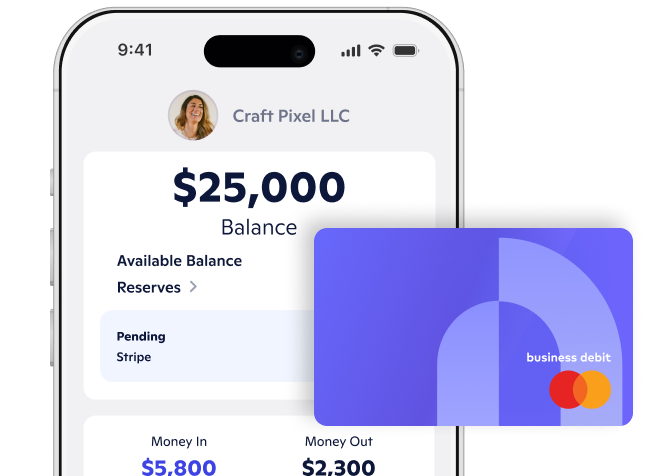
tarting a small business takes a great idea, intelligence, grit, and the funding to put your ideas to work. That's why having enough money to cover at least six months of operational costs is vital when you're getting your business off the ground.
Finding money to get started is a crucial part of getting your business going. In this article, we'll explore how to assess your funding needs and how to find investors for your small business.
Assess your funding needs
Investors love to see that a budding business is organized. So, before you pursue funding, you'll need to know precisely how much funding you'll be asking for and how it will be budgeted. To assess your funding needs, you'll want to create a business plan and break down your:
- Fixed costs, such as rent, insurance, and salaries
- Variable costs, such as materials, advertising, and shipping costs
- Break-even point
Creating a thorough business plan will make your business more attractive to potential investors. Once you've factored in all of your costs and know how much you need, you'll have a better idea if internal or external investment is right for you.
Internal investment is when you generate funds for your business through sources such as personal savings or loans from friends and family. External investment refers to raising funds for your business through sources such as business loans, grants, and even crowdsourcing.
Let's look at some internal and external funding options.
How to find investors for your small business
To ensure your business has the money it needs to succeed, you should consider seeking funds from different sources. Here are several ways you can find investment for your small business.
Traditional funding sources
When brainstorming ideas, entrepreneurs typically think of traditional funding methods first. These are all effective ways of raising money, and each offers its own unique value:
- SBA loans: The U.S. Small Business Administration (SBA) has a variety of loan programs that offer you an opportunity to fund your business without giving up equity or control. SBA loans also generally offer lower down payments and interest rates than other types of loans.
- Bank loans: A traditional bank loan has more flexibility in the amount you can borrow compared to an SBA loan. Establishing a relationship between your business and a bank and building credit may also help you in the future.
- Venture capitalists: A venture capitalist firm can give you access to more capital than most banks are willing to provide. You’ll also get guidance from experienced investors with extensive networks, which can be valuable for business growth.
- Angel investors: They use their own money to invest in your small business in exchange for partial ownership. Getting funding from angel investors also lets you benefit from the knowledge and experience they have gained from past ventures.
Crowdfunding
Crowdfunding is when individuals combine their resources to fund a project or business venture. These individuals pool their money by pledging contributions through a crowdfunding platform. Contributors can range from friends and family members looking to lend a helping hand to complete strangers who believe in your business.
There are several types of crowdfunding, including:
- Donation-based: Contributors receive no financial return
- Reward-based: Contributors receive non-financial rewards
- Equity-based: Contributors receive shares in your business
Some popular crowdfunding sites:
- GoFundMe: Donation-based
- IndieGoGo and Kickstarter: Reward-based
- Seedrs: Equity-based
Grants
Grants are a great way to fund your small business because you don’t have to pay back the money or offer equity in exchange. However, grants can be quite competitive, and your business must meet specific requirements to apply. Additionally, each grant has its own unique requirements.
The good news is that there is a long list of grants you can choose from. Types of small-business grants include:
- Federal grants
- State and local grants
- Research grants
- Corporate grants
- Foundation grants
Finding grant opportunities for a business in your specific industry requires research. The U.S. Chamber of Commerce is a great place to start for federal grants, and many online financial publications can provide you with grant suggestions. When applying, be sure you fully understand the eligibility requirements and customize your proposal to align with each grant's objectives.
Accelerators and incubators
Accelerators and incubators are programs designed to help businesses get started and grow. They do this by providing resources, mentorship, and networking opportunities. While both also assist with funding, they play different roles:
- Incubators play a more long-term role in helping businesses that don't yet have a well-developed business model.
- Accelerators help to speed up the growth of businesses that have already been started.
Finding the right incubator or accelerator for your business requires targeted research online. It also helps to attend startup events and network with other entrepreneurs who can point you in the right direction.
Friends and family
Approaching friends and family about investing in your business offers benefits and drawbacks.
Pros
- Investors who personally care about your success
- Flexibility with terms
- Higher likelihood of getting the money you need
Cons
- It can put a strain on your personal relationships
- Business decisions can become less objective
- Loss of money can hurt those you care about
If you choose to approach friends and family for funding, treat it as a formal business arrangement. Be sure to prepare legal documentation and a detailed plan of how you intend to return the investment. And don't take it personally if your investment proposal is declined.
Alternative funding sources
Some additional financing options to consider:
- Revenue-based financing: This involves obtaining capital in exchange for a percentage of future revenue.
- Royalty-based financing: This provides funding in exchange for a share of future sales or revenue.
- Equipment financing: This allows businesses to secure funding specifically for equipment purchases.
Each of these options has various pros and cons, so if they interest you, further research is recommended.
Networking
Networking is pivotal to success in business. It's essential in raising funds, forging connections with potential investors, and staying on top of developments in your industry.
Attending industry events is a must for networking effectively. Joining entrepreneurial communities and being active on online platforms are also good ways to network.
To make a good impression when networking, listen as much as you talk. Networking is a two-way street, so show genuine interest and provide value when connecting with others.
Always be prepared to pitch when necessary but don't try to shoehorn it into every conversation. Maintain a professional and personable demeanor and follow up afterward. This will help you develop connections and relationships that may be helpful throughout the entire life of your business.
Takeaways
Money is the lifeblood of every business, and there are plenty of options for obtaining it: traditional funding sources, crowdfunding, grants, accelerators and incubators, friends and family, alternative funding sources, and networking. When figuring out how to find investors for your small business, it's imperative that you be prepared, know what your business needs, and research your options thoroughly.
Once you have your money, you'll need safe and reliable access to it. Novo can help you streamline your business banking so that you can stay focused on growing your company.
Novo Platform Inc. strives to provide accurate information but cannot guarantee that this content is correct, complete, or up-to-date. This page is for informational purposes only and is not financial or legal advice nor an endorsement of any third-party products or services. All products and services are presented without warranty. Novo Platform Inc. does not provide any financial or legal advice, and you should consult your own financial, legal, or tax advisors.
Novo is a fintech, not a bank. Banking services provided by Middlesex Federal Savings, F.A.: Member FDIC.






